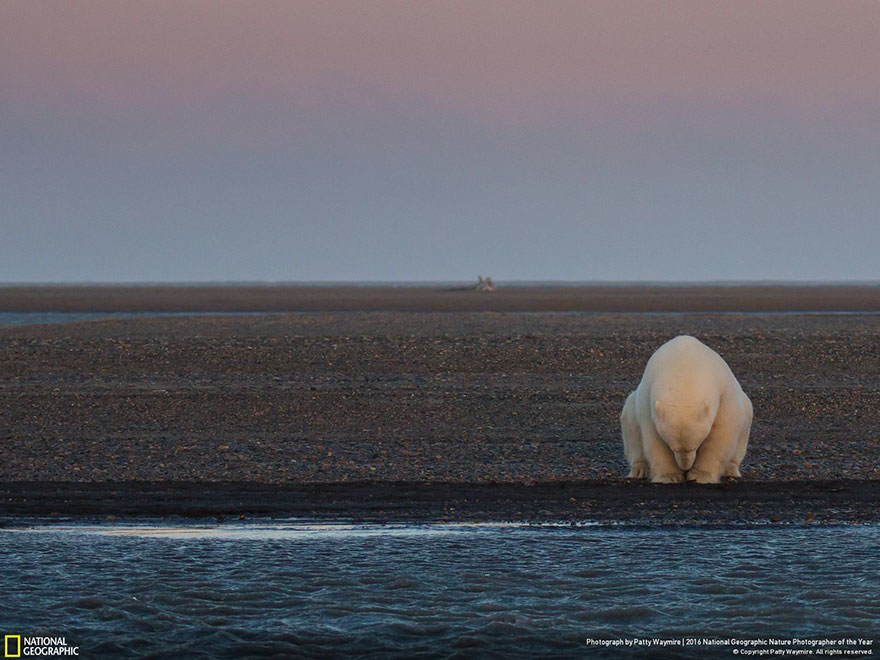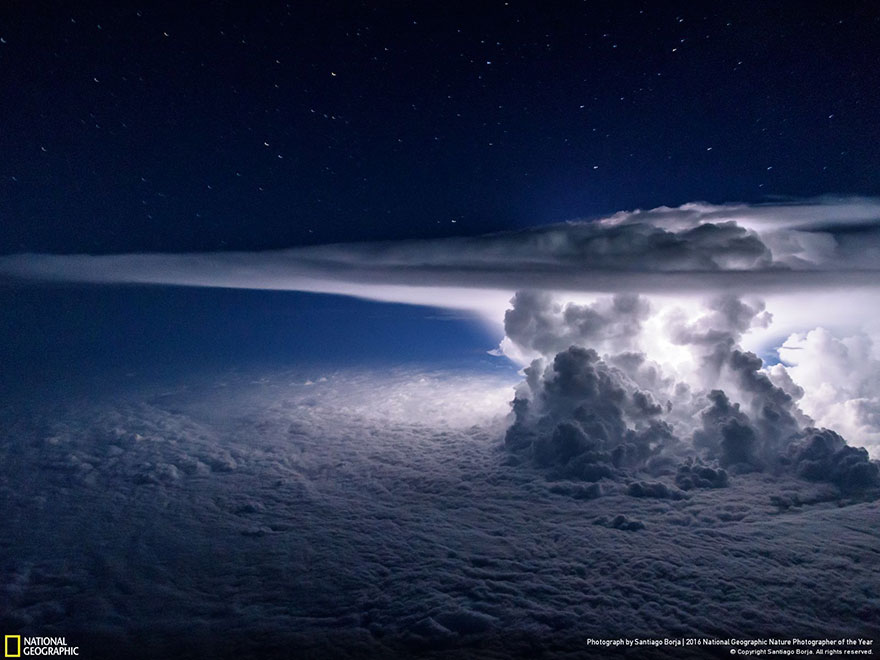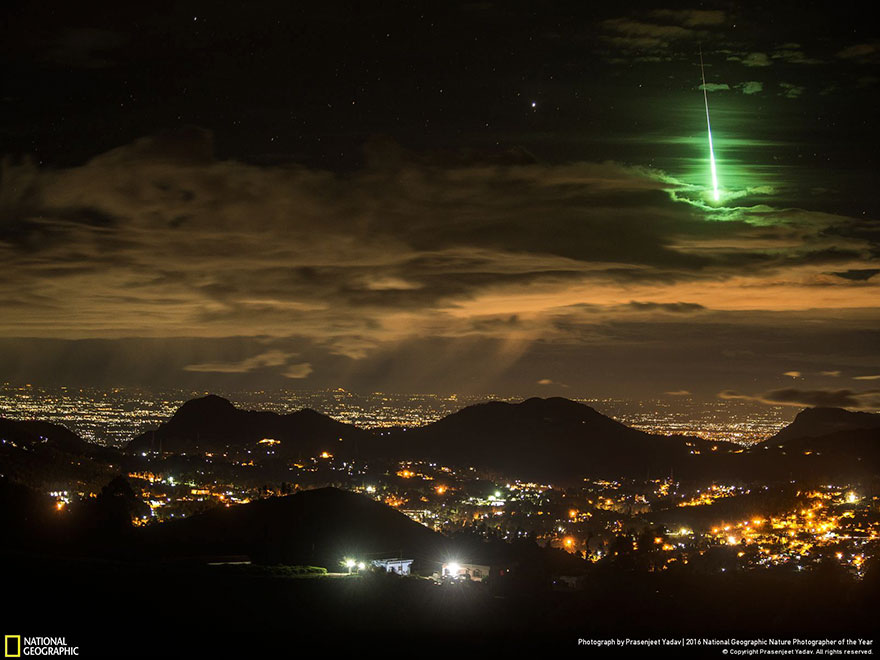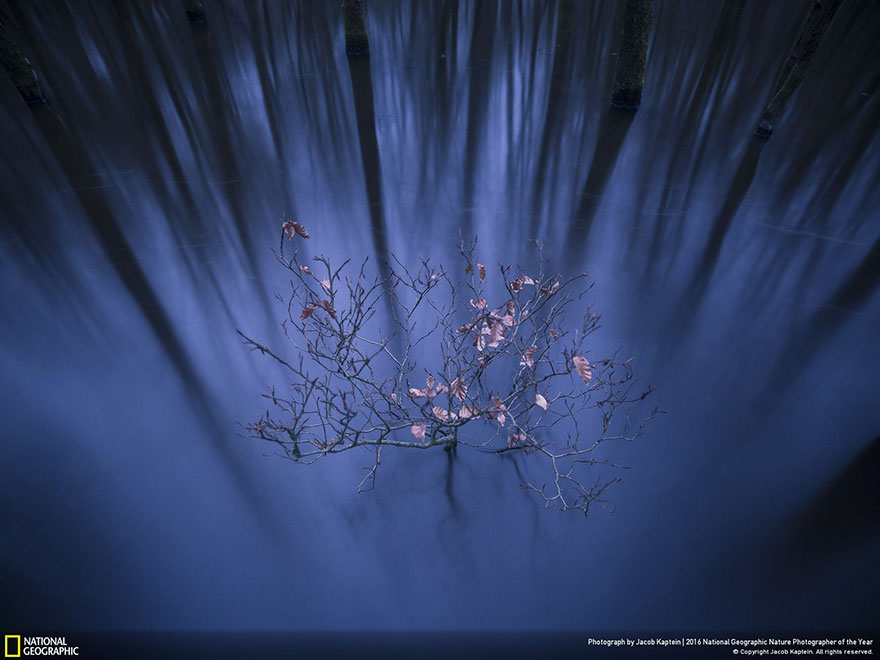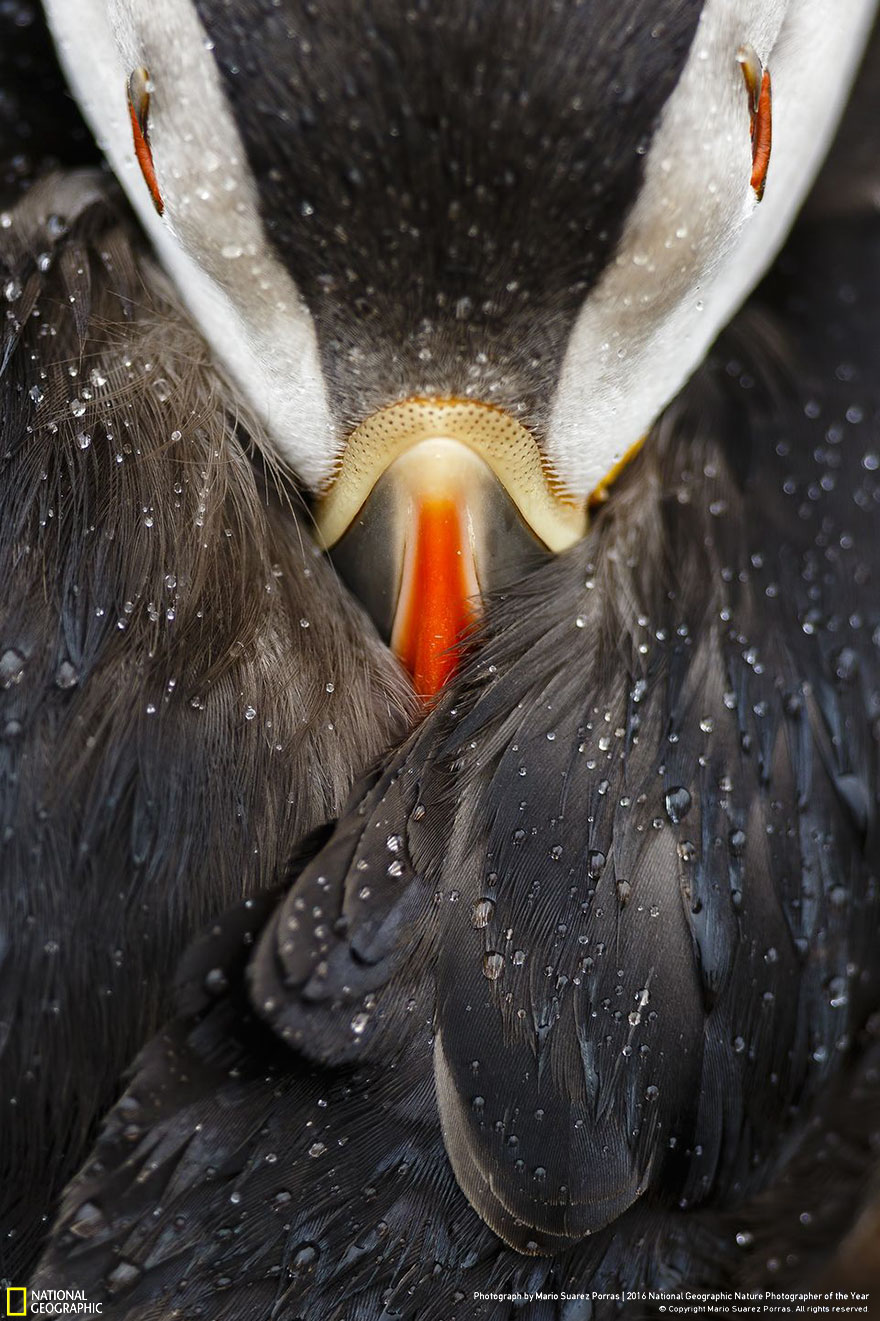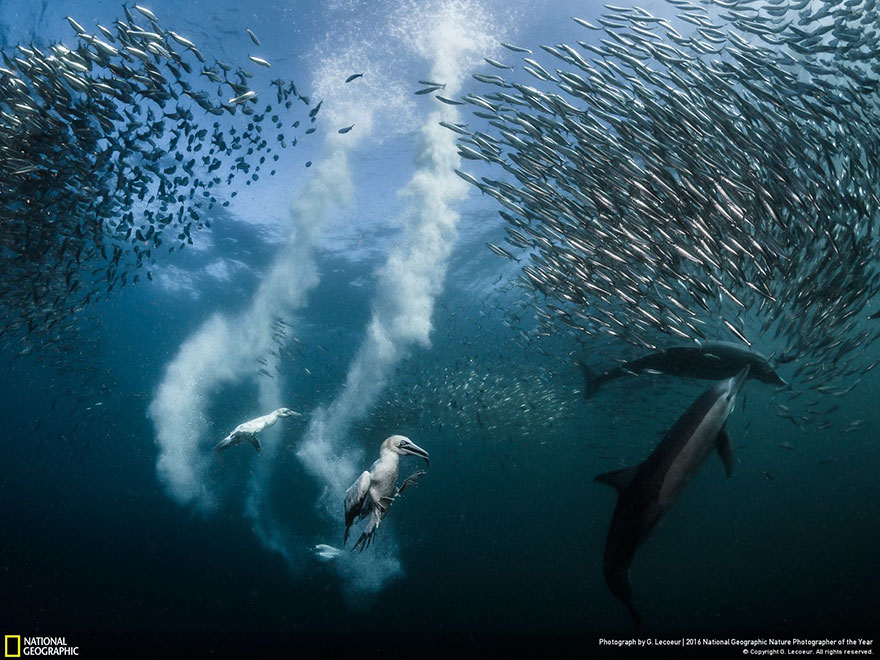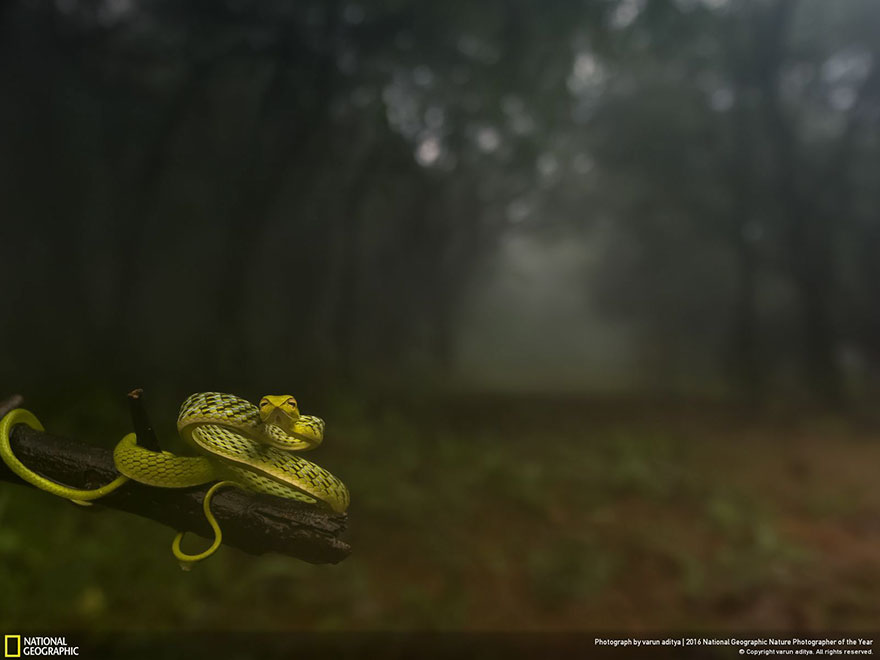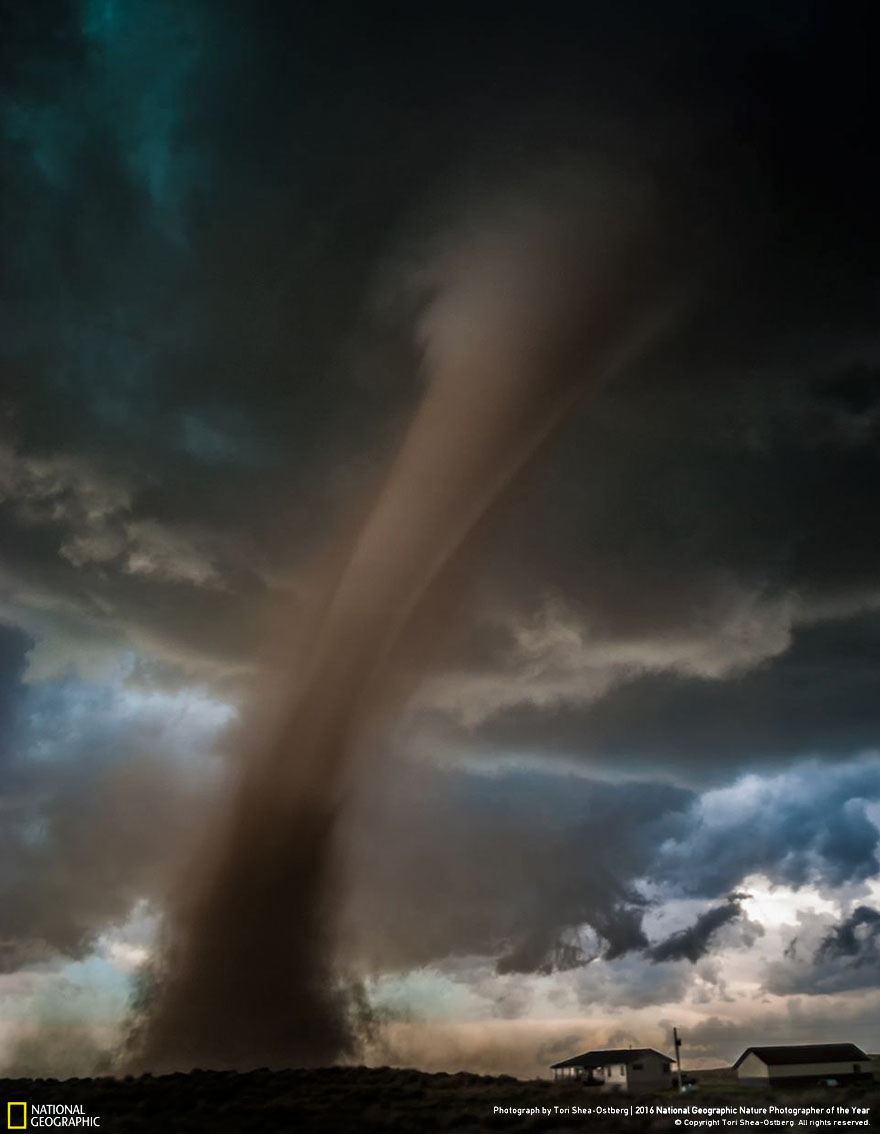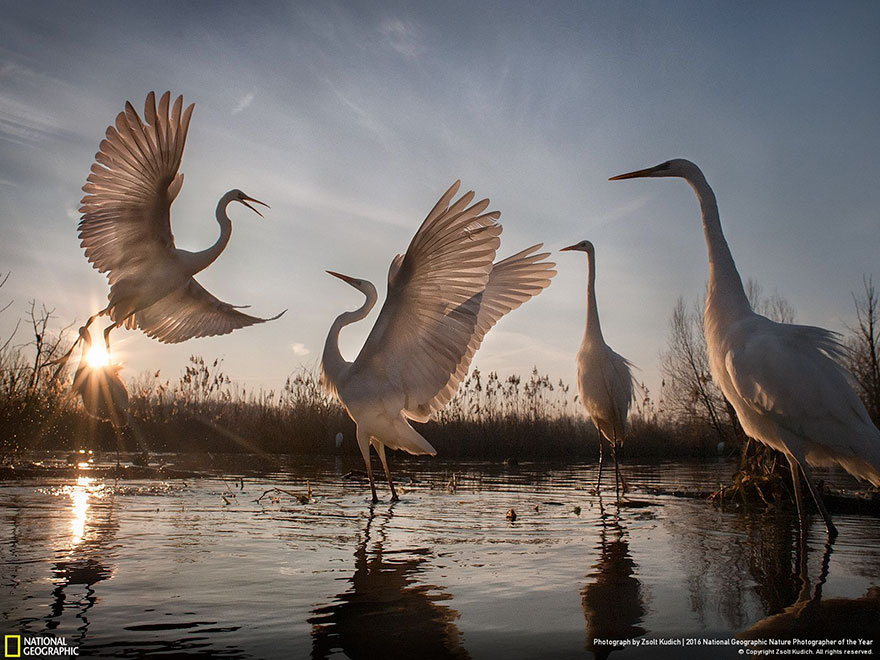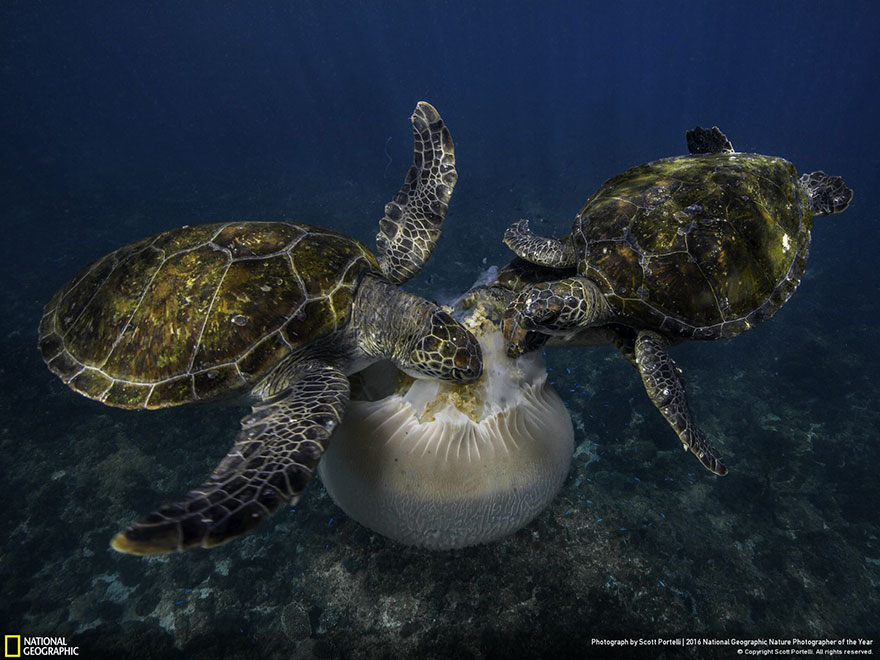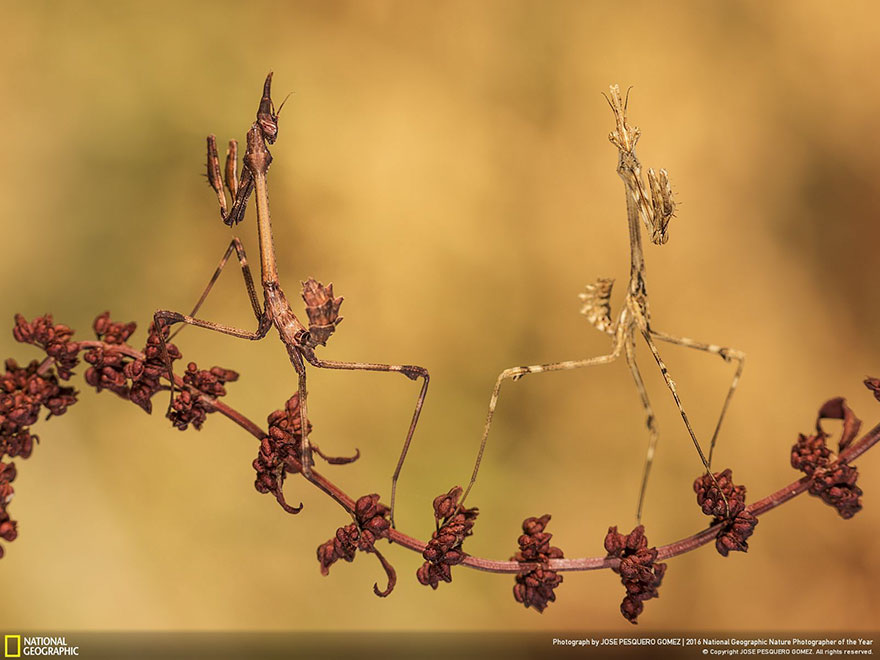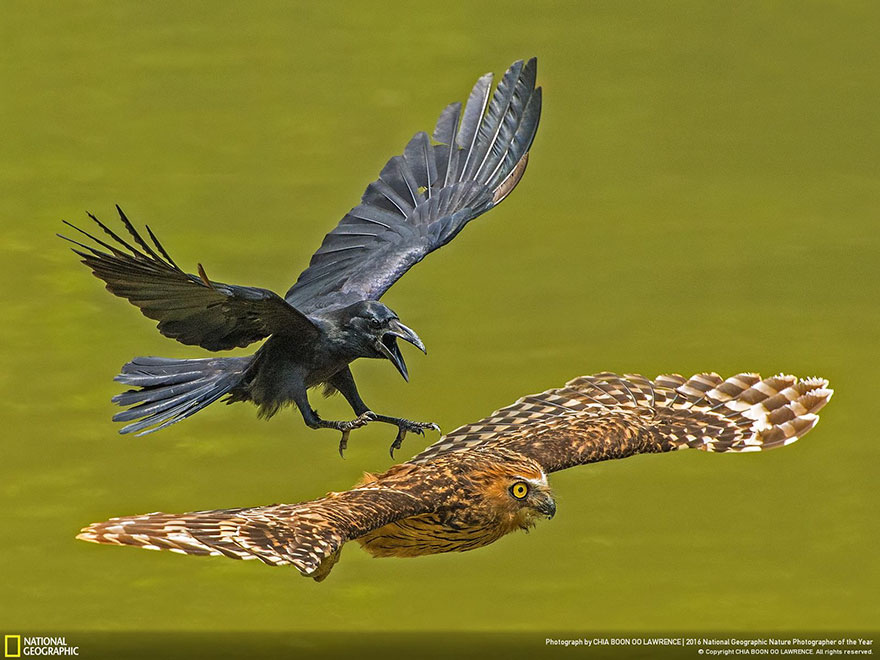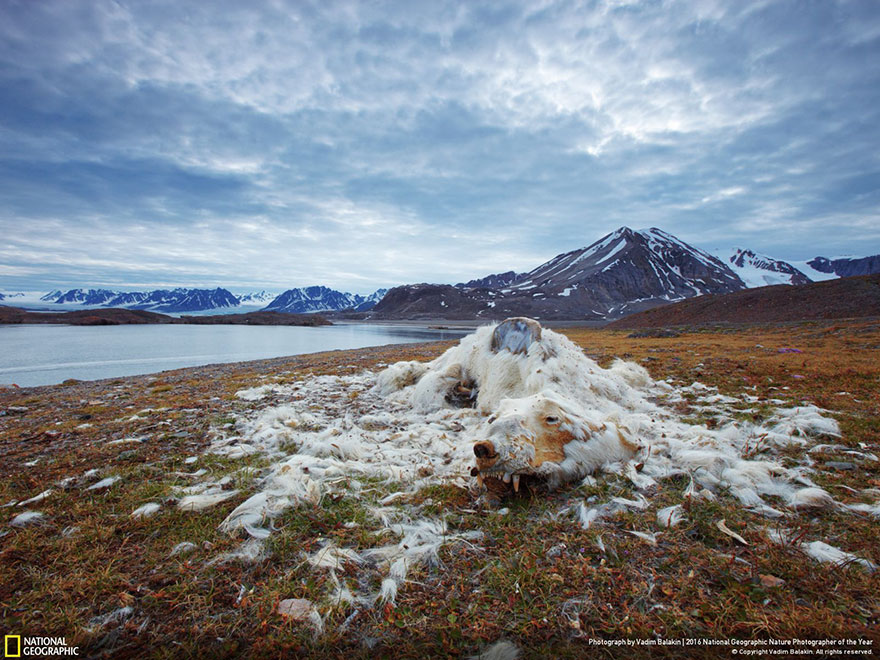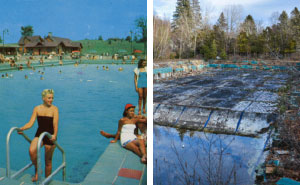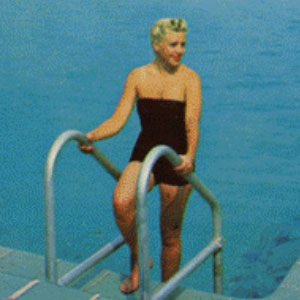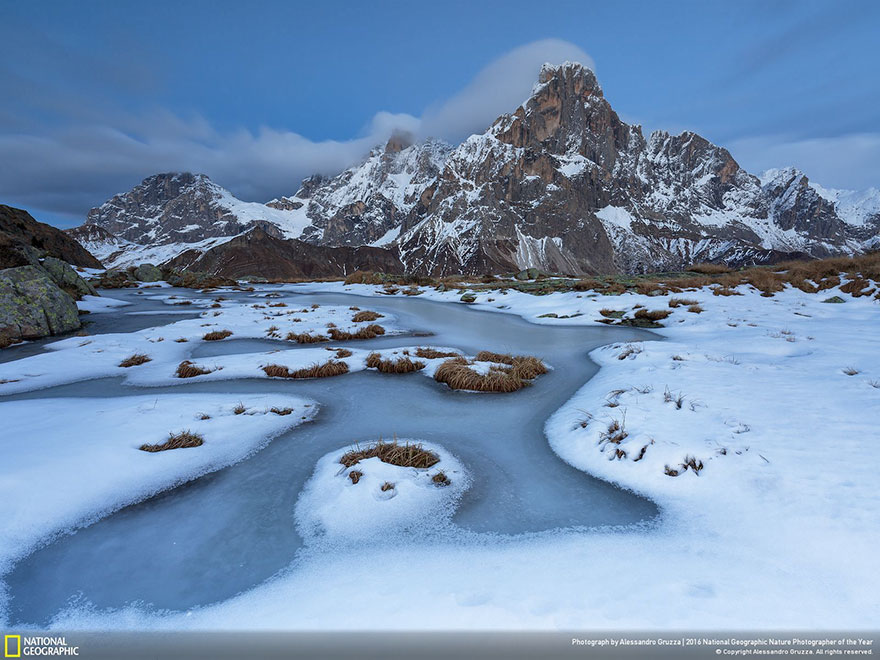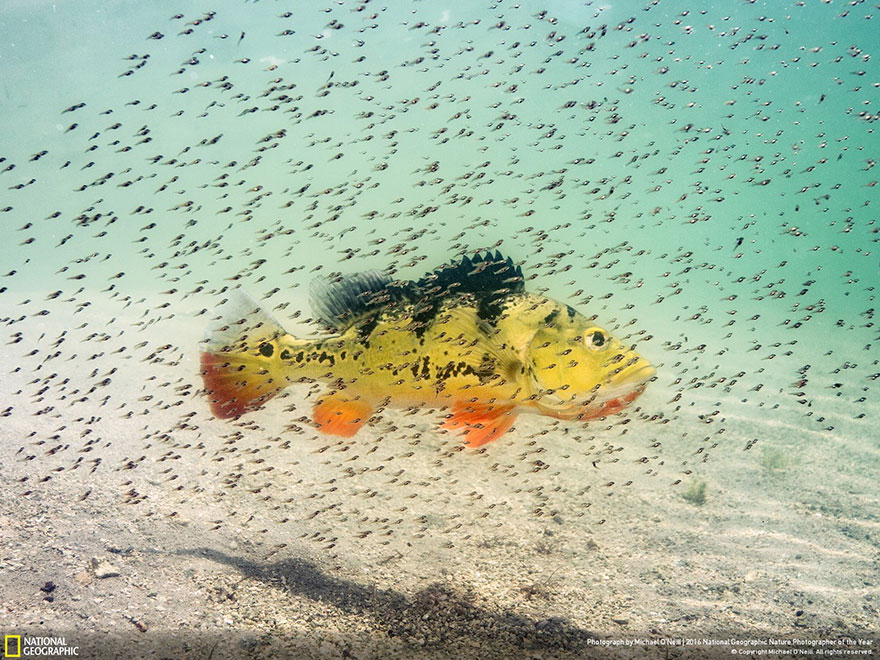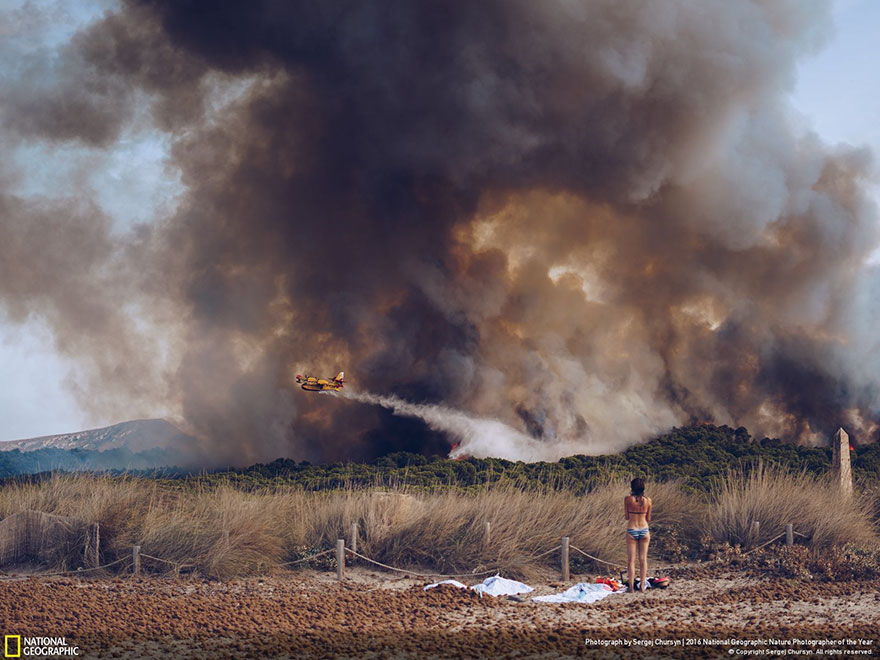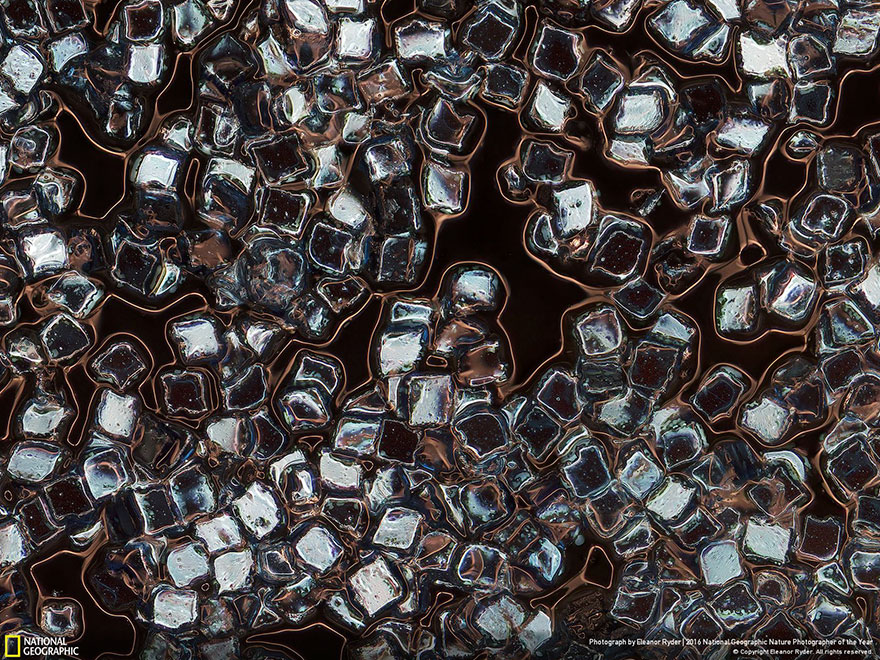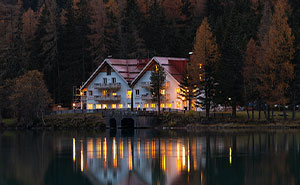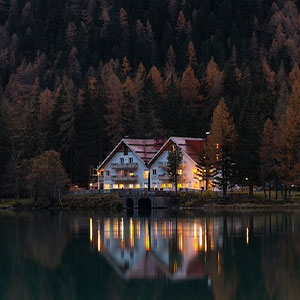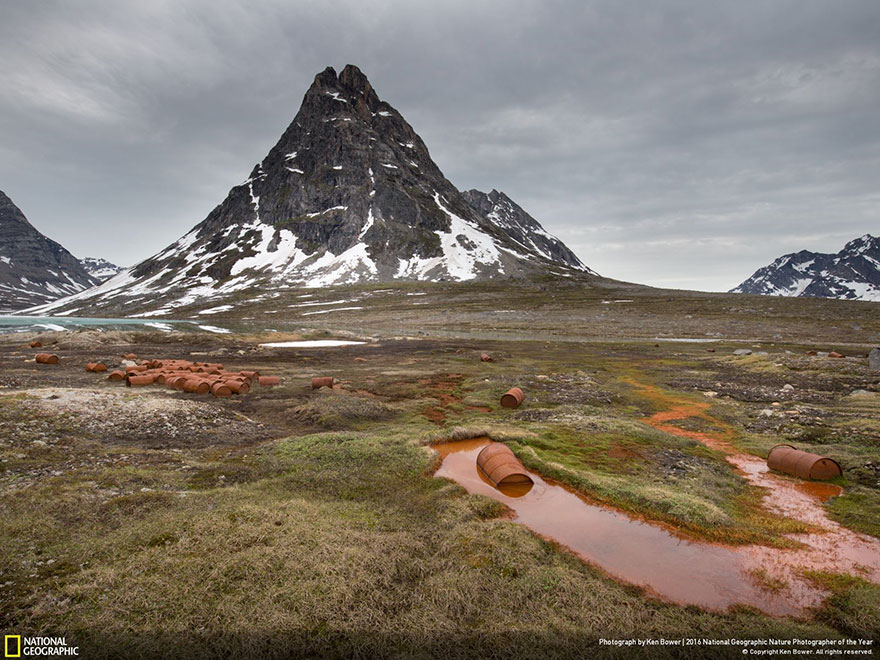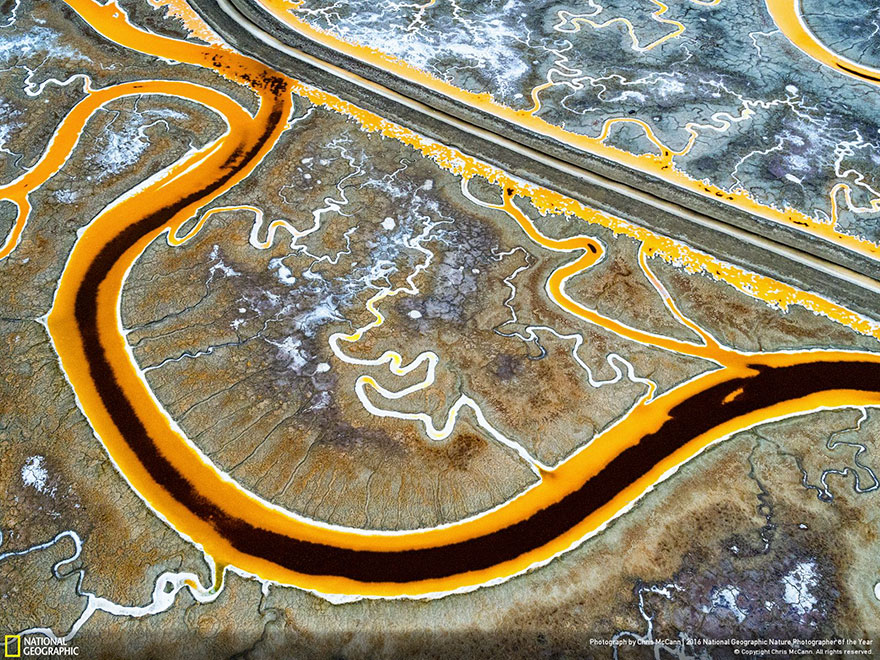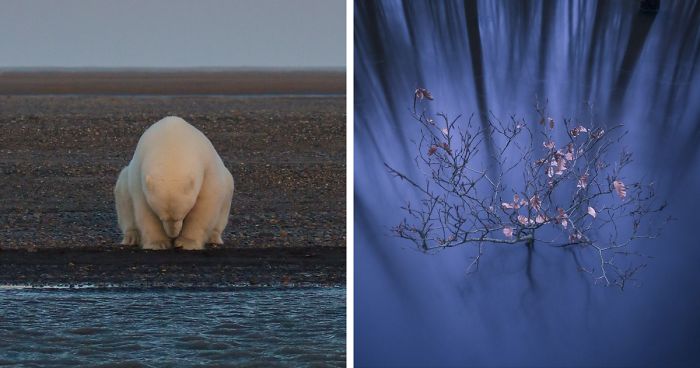
122Kviews
The Winners Of The 2016 National Geographic Nature Photographer Of The Year Contest
National Geographic has just announced the results of the prestigious 2016 Nature Photographer of the Year contest. As you can see from the pictures below, the judges had a hard time choosing the very best image but the first place along with a 10-day trip for two to the Galapagos Islands, two 15-minute image portfolio reviews with organisation's photo editors and a $2,500 cash prize went to Greg Lecoeur for a superb shot of predators hunting sardines underwater.
The competition attracted thousands of entries from photographers all over the world. Esteemed judges included National Geographic's senior photo editor Kathy Moran as well as magazine's photographers Joe Riis and Jim Brandenburg. They rated images in four categories - action, landscapes, animal portraits, and environmental issues.
More info: nationalgeographic.com
This post may include affiliate links.
Honorable Mention, Environmental Issues: No Snow, No Ice? Barter Islands
A solitary bear sits on the edge of one of the Barter Islands. There is no snow, when at this time of year, there should be. In speaking with the locals in Kaktovic, they've noted that it's been an unseasonably warm winter, and that the ice will be late in forming this year. This will have an impact on the local polar bear population, when it comes time to hunt seals for their food in the winter months...
Third Place Winner, Landscape: Pacific Storm, Pacific Ocean
A colossal Cumulonimbus flashes over the Pacific Ocean as we circle around it at 37000 feet en route to South America.
Honorable Mention, Landscape: Serendipitous Green Meteor, India
This Green Meteor was captured while taking a time-lapse to document the urbanization around the Skyislands in India. The camera was set at 15s exposure for 999 shots and this came into one of those shots. Green Meteor’s greenish color come from a combination of the heating of oxygen around the meteor and the mix of minerals ignited as the rock enters Earth's atmosphere. I think for those 15 seconds, I was the luckiest photographer on the planet to have capture this phenomenon.
What?? HE ONLY GOT A HONORABLE MENTION? for capturing a GREEN METEOR?
First Place Winner, Landscape: Struggle Of Life, Netherlands
To restore original natural dynamics in streams many measures are necessary. In the 'Leuvenumse beek' a nature organisation tried to increase heterogeneity of the river bottom and water retention by putting dead wood in the streamsystem. In autumn when rainfall is high, pieces of forest get flooded. Once i saw this little beech in the water, trying to survive under these harsh conditions. I returned sometimes to this place to take pictures. One evening all the conditions were satisfactory.
Honorable Mention, Animal Portraits: Puffin Studio, United Kingdom
This image was taken last summer on Skomer Island, Wales. It is well known for its wildlife, the puffin colony is one of the largest in U.K.The photo shows a detail or study of an Atlantic puffin resting peacefully under the rain. As Skomer is inhabited, puffins do not feel afraid of humans, and so people can be close to puffins and the photographer can think about the right composition and take this kind of intimate portraits. Also that morning the conditions came together: rain and light.
Grand Prize Winner: Sardine Run, South Africa
I captured this image during the migration of the sardines along the wild coast of South Africa. Natural predation, sardines are preyed upon by cape gannet birds and common dolphins. The hunt begins with common dolphins that have developed special hunting techniques. With remarkable eyesight, the gannets follow the dolphins before diving in a free fall from 30 to 40 meters high, piercing the surface of the water head first at a speed of 80km/h to get their fill of sardines.
First Place Winner, Animal Portraits: Dragging You Deep Into The Woods!
A morning stroll into the blissful forest ! Ceaseless drizzles dampening the woods for 12 hours a day; The serene gloom which kept me guessing if it was a night or a day. Heavy fog, chilling breeze and the perennial silence could calm roaring sprits; And there I spotted this 20cm beauty the Green vine snake ! I wondered if i needed more reasons to capture this with the habitat; For I was blessed to see this at the place I was at. I immediately switched from the macro to the wide angle lens.
Second Place Winner, Action: Approach, Wray, Colorado
An EF2 tornado bears down on a home in Wray, Colorado- May 7, 2016. As soon as we were safe, as the tornado roared off into the distance through a field before roping out, we scrambled up the hill to check on the residents.Thankfully, everyone was alright, and we were grateful for that. As I was checking in with a young woman coming out of the basement, we became very aware of a strong new circulation - right above our heads. We needed to run for cover, and did so before saying a proper goodbye.
Third Place Winner, Action: Changing Fortunes Of The Great Egret, Hungary
A remarkable conservation success story, the graceful Great Egret was saved from the brink of disappearance in Hungary, when in 1921 there were only 31 mating pairs remaining. Less than a century later, international conservation efforts have triumphed. We can now count over 3,000 mating pairs in Hungary alone.
Honorable Mention, Action: Jellyfish Feast, New South Wales, Australia
Green turtles devour the soft tentacles of a jellyfish which are a common food source for many turtles.
It is also the reason that when people litter, and their plastic grocery bags are in the water, the poor turtles mistake them for jellyfish and choke on them!!! DONT LITTER!!!
Third Place Winner, Animal Portraits: Friendship Knows No Color, Spain
'Friendship knows no color, nationality, race and social level, friendship knows no age and gender, friendship knows no distance' -quoted by Luis A Ribeiro Branco-. This way must be. And this images perfectly could represent that message. Two Empusa Pennata which seem to play a game on the thin plant. Wildlife image and absolutely uncommon to see a couple of this species together.
Honorable Mention, Animal Portraits: Crow Chasing Puffy Owl
The Crow saw the Puffy Owl resting and decided to chase away the Owl from its territory.
First Place Winner, Environmental Issues: Life And Death, Svalbard And Jan Mayen
These polar bear remains have been discovered at one of the islands of Northern Svalbard. Unfortunately we do not know definitely whether the bear died from starving or aging, but more likely if we see the good teeth status - from starving . They say nowadays such remains to be founded very often - global warming and ice situation influence the polar bear population a lot.
Second Place Winner, Landscape: Wild Rink, Italy
The first cold days of winter have frozen the surface of a pond. The first snowfall has revealed its delicate beauty. A long shutter speed enhances the movement of the clouds around Mt. Cimon de la Pala, Paneveggio-Pale San Martino Natural Park, Italy.
If that ice is thick enough... it may be skate-able. Looks like an interesting course!
Second Place Winner, Animal Portraits: Proud Momma, Florida
Fry of a Peacock Bass hover around their mom for protection against predators. Peacock Bass, part of the Cichlid family, exercise excellent parental car and will protect their young against any threat that approaches them. This tropical species from South America was intentionally introduced in South Florida during the 1980s to control the African Tilapia, another invasive species.
Honorable Mention, Environmental Issues: Wildfire At The Beach, Spain
A young woman in bikini looks at an approaching forest fire near the beach. A firefighting plane drops water to extinguish the wildfire. This image was taken at the beach of Son Serra, on the island of Mallorca on August 18, 2016.
Third Place Winner, Environmental Issues: Toxic Vanity, United Kingdom
This image is a magnification of plastic particles in eyeliner exploring just one facet of the synthetic swarm suspended in our oceans. The particles, lash lengthening fibres, illuminating powders and glitters these products contain are in fact tiny pieces of plastic. Every time we wash these products from our bodies or ingest them as we lick the glosses from our lips, we unknowingly add to the trillions of micro plastic particles currently infesting every level of the ocean.
Honorable Mention, Environmental Issues: American Flowers #1, Greenland
In Greenland's pristine landscape lies a US Air Force base which was abandoned in 1947 and everything was left behind, vehicles, asbestos laced structures, and over 10,000 aviation fuel barrels. The Inuits who live in the region call the rusted remains American Flowers. In 2014 and 2015 I camped out solo to photograph it. In 2015 my 5 day solo camping trip turned into 8, as I couldn't get picked up due to the weather.
Second Place Winner, Environmental Issues: The View Outside Facebook Hq, California
Eighty percent of the San Francisco Bay Area wetlands - 16,500 acres - has been developed for salt mining. Water is channeled into these large ponds, leave through evaporation, and the salt is then collected. The tint of each pond is an indication of its salinity. Micro-organisms inside the pond change color according to the salinity of its environment. This high salinity salt pond is located right next to Facebook HQ where ~4,000 people work every day.
No mention on the smell...especially during summer? Taking Dumbarton with the actual speed limit is excruciating.
